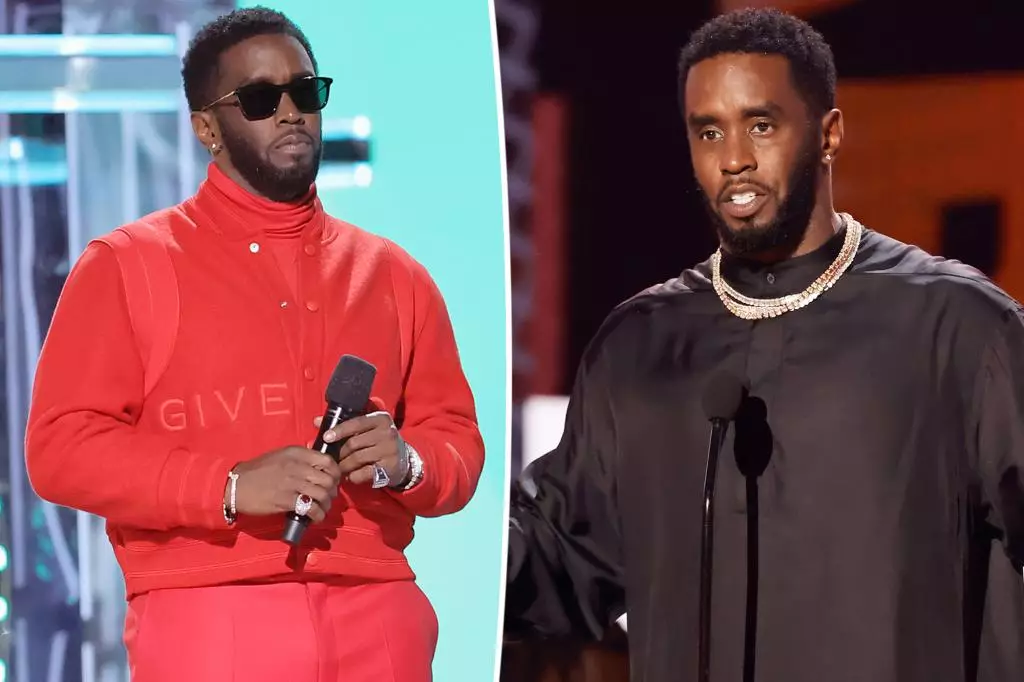The entertainment world is abuzz with the impending trial of Sean “Diddy” Combs, who faces serious allegations of sex trafficking and racketeering. As details unfold, the implications of his courtroom strategy become paramount. With significant weight resting on whether he should take the witness stand, there are mixed opinions on how such a move would affect his case.
Attorneys often advise clients to stay off the witness stand, but the unconventional yet compelling desire to testify can lead to perilous outcomes. Meesha Moulton, an acclaimed attorney, has expressed her reservations about Combs’s intention to share his side of the story under oath. She highlights that the rigor of cross-examination could expose vulnerabilities, allowing prosecution to delve into inconsistencies and past misdeeds. This not only risks damaging Combs’s credibility, but it poses the threat of revealing information that he would prefer remain hidden.
The courtroom can transform into a theatre of psychological warfare, especially during cross-examination. An emotionally charged atmosphere may make even the most composed individual falter. Diddy’s potential struggle to maintain his cool amid pressure could turn jury sentiments against him. Instead of being perceived as a sympathetic figure, he might be framed as evasive or defensive, amplifying doubts about his innocence.
Moulton strongly believes that Combs should prioritize a strategic defense rather than indulge his instinct for personal expression. Given the gravity of the accusations he faces—ranging from sex trafficking to running a criminal enterprise—the stakes could not be higher. A well-planned defense should shield him from exposing himself to damaging questions while preserving the essence of the narrative he wishes to convey.
The analogy can be drawn to a chess match, where every move must not only advance one’s own strategy but also anticipate counter-moves from an opponent. Engaging with the prosecution’s narrative through testimony can give away crucial information that Combs would otherwise keep under wraps, thus compromising his position.
However, there is an undeniable human element in this ordeal. Combs’s attorney, Marc Agnifilo, argues that the story he brings could resonate as a deeply personal account of love, pain, and redemption. The ability to illustrate his life outside of legal troubles can work in his favor. Should he choose to testify, Diddy would have the chance to portray himself as a complex individual, intertwining his philanthropic endeavors and career accomplishments with the allegations against him.
The act of testifying could temporarily shift the narrative from the prosecution’s allegations to Diddy’s own depiction of events, potentially disrupting the jury’s focus. By humanizing himself and emphasizing his positive contributions to humanity, he could cast ambiguity on the prosecution’s claims. However, the risks are incredibly high; the jury’s ability to process both stories could lead to a significantly skewed perception if he falters amidst cross-examination.
Compounding this pressure is the fact that new evidence could arise, unpredictably altering the courtroom dynamics. Diddy must be prepared not only for the relative shock of cross-examination but also for any unexpected revelations that may surface. As the legal process often unfolds with unforeseen twists, a firm grasp on composure becomes essential.
The ramifications of this case extend beyond Diddy personally; they have potential consequences for the entire music industry and societal perceptions of celebrity accountability. The allegations framing him as an orchestrator of a criminal enterprise indicate a deep-rooted issue that plagues many high-profile figures, as the intersections of fame and morality often lead to complex narratives.
Diddy has pleaded not guilty and continues to maintain his innocence amid a myriad of sex-related lawsuits. As he awaits the forthcoming status hearings, the question looms: will he rise by choosing to testify, or will he risk condemnation by exposing himself to myriad uncertainties in the courtroom?
Ultimately, the path Diddy chooses in his legal battle may set a precedent for how similar cases are navigated in the glitzy yet treacherous world of fame. It is a stark reminder that the allure of stardom often comes at a price—a price measured not just in dollars, but also in dignity, reputation, and personal freedom. As the courtroom drama unfolds, the stakes remain undeniably high, foreshadowing potential changes in the landscape of celebrity culture and its accountability to societal norms.
